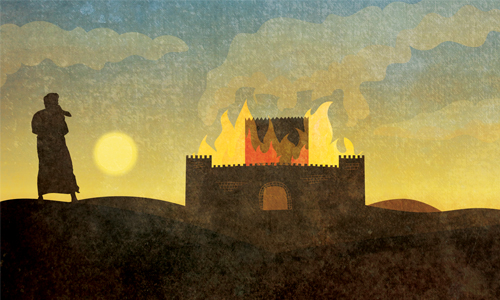Don't Separate God's Holiness & Love

It is the holiness of God that defines His character, and all of His other characteristics. This holiness is what sets Him apart from His creation and what makes Him completely unique from anything and everything else. It is this understanding that He is transcendent or set apart from His creation that we must keep in view as we explore all the other attributes that make God who He is; it is literally the starting point for or understanding of His person. While all of the attributes of God are woven together so that none can be taken without all of them falling apart, it is His holiness that bonds them together. This is the reason that when given that view of angels around the throne in Isaiah 6, they are crying that He is "holy, holy, holy". It is the holiness of God that manifests itself in the actions that He takes in the world such as His mercy, righteousness, and judgment. If the holiness of God is what He is, then we could say that the love of God is who He is. It is...












